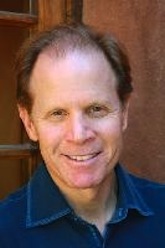Daniel J. Siegel, MD received his medical degree from Harvard University and completed his postgraduate medical education at UCLA with training in pediatrics and child, adolescent and adult psychiatry. He served as a National Institute of Mental Health Research Fellow at UCLA, studying family interactions with an emphasis on how attachment experiences influence emotions, behavior, autobiographical memory and narrative.
Dr. Siegel is currently a clinical professor of psychiatry at the UCLA School of Medicine where he is also on the faculty of the Center for Culture, Brain, and Development and the Co-Director of the Mindful Awareness Research Center at UCLA. An award-winning educator, he is a Distinguished Fellow of the American Psychiatric Association and recipient of several other honorary fellowships. Dr. Siegel is also the Executive Director of the Mindsight Institute, an educational organization that focuses on how the development of mindsight in individuals, families and communities can be enhanced by examining the interface of human relationships and basic biological processes. His psychotherapy practice includes children, adolescents, adults, couples, and families.
Dr. Siegel has published extensively for the professional audience. He is the co-editor of a handbook of psychiatry and the author of numerous articles, chapters, and the internationally acclaimed text, The Developing Mind: Toward a Neurobiology of Interpersonal Experience (Guilford, 1999). This book introduces the idea of interpersonal neurobiology and has been of interest to and utilized by a number of organizations, including the U.S. Department of Justice, The Vatican’s Pontifical Council for the Family, Microsoft and Google, early intervention programs and a range of clinical and research departments worldwide. He has been invited to lecture for the King of Thailand, Pope John Paul II, and His Holiness the Dalai Lama.
Dr. Siegel serves as the Founding Editor for the Norton Professional Series on Interpersonal Neurobiology which also includes more than 20 textbooks. His book with Mary Hartzell, M.Ed., Parenting from the Inside Out: How a Deeper Self-Understanding Can Help You Raise Children Who Thrive(Tarcher/Penguin, 2003) explores the application of this newly emerging view of the mind, the brain, and human relationships. His professional book, The Mindful Brain: Reflection and Attunement in the Cultivation of Well-Being(Norton, 2007), explores the nature of mindful awareness as a process that harnesses the social circuitry of the brain as it promotes mental, physical, and relational health. His book Mindsight: The New Science of Personal Transformation offers the general reader an in-depth exploration of the power of the mind to integrate the brain and promote well-being. His latest professional text, The Mindful Therapist, explores the application of these ideas for the clinician’s own development of mindsight and neural integration.
Discover these discount codes for you!: Angie’s List and 10% off on printer ink at 4inkjets and 10% off on Shoes and other apparel at ShoeBuy.com.
A psychology podcast by David Van Nuys, Ph.D.
Podcast: Play in new window | Download
Subscribe: Apple Podcasts | RSS

Great interview, I’m a firm believer that analysts should go through analysis myself. You two were talking about brain training software; I have a friend around 19 y/o who’s having trouble reading. He can read at a slow pace, but often the reading pace demanded by certain functions of society are beyond him.
Would anyone be able to direct me to some kind of reading enhancement programme?
Cheers!
John
I so enjoyed this interview and found Dan Seigal’s talking so engaging. His theory of mindsight has just ‘join up’ a whole load of ‘dots’ that has made a whole lot of sense re mindfullness, and therapy. He has a great way of explaining quite difficult concepts – “fruit salad”, if not the meaning of life, is up there with the most important things to know about!
Thanks Dave, for your good work
Yours sincerely
Lois
Man, that’s an interview with broad perspective, wow!
I was glad when you mentioned how his thoughts in some of these areas gelled with Jungian theory: I was thinking it at that same point, and then you said it right there. How gratifying!
I was wondering if we could get some of Daniel’s references to the neural side of the heart and intestines? If so, it could re-open and re-explore some points we were talking about on the discussion group, with some of the off-shoot topics of cellular memory, involving organs, and so on.
Thanks, again,
John
P.S. My last comment was meant for the Gary Small interview, but it was something I wrote at 2 AM just at this one went up, and didn’t notice my error! If there’s a way you could ‘bump’ it over Gary’s interview page, that be great.
Cheers!
This is such a great interview. It covered much of Dan’s work in a way that really ties it all together. Congratulations! His newest work is The Neurobiology of We, which is about 8 hours of audio (I listened via interlibrary loan). There are audio/video from TED and Google on his web site which are free. I use a lot of his literature in my parenting seminars and have found it really useful. Thank you Dr. Dave!
Regarding the “special child”: There is a chapter called “The Inverse Power of Praise” in a book called “Nurture Shock” that relates closely to this question. I think your listener / coauthor / friend may find it very interesting as it references some of the latest research on the effects of how we praise children. It sure gave me insight into how I ended up as a perfectionist with a mortal fear of – and inability to deal with – failure.
Loved this episode.
It inspired me to post in my blog.
http://teenshrinktalk.blogspot.ca/2013/02/heading-to-second-annual-interpersonal.html
His definition of mind is evolutionary!